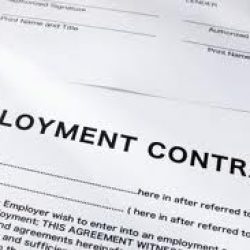More than a million UK workers are on zero-hours contracts with no guarantees of shifts or work patterns – four times official estimates, research suggests.
A survey of 1,000 employers by the Chartered Institute of Personnel and Development indicated 3-4% of the whole workforce were on such contracts.
According to the CIPD’s research, firms in the voluntary and public sectors were more likely to use zero-hours contracts than those in the private sector.
The industries where employers were most likely to report having at least one person on a zero-hours contract were hotels, catering and leisure, education and healthcare.
The CPID said one in five employers in the UK had at least one person on a zero-hours contract. This means workers can be officially counted as employed, but have no guaranteed paid work and can be sent home from their workplace without warning and without having earned anything.
While zero-hours contracts may suit some due to the flexibility they provide, critics point out that the system can lead to fluctuating wages and a risk that managers may use their contract as both reward and punishment.
At places of employment found to be using the contracts, the average number of workers who were on them was around 16%, according to CIPD.
Based on these figures, CIPD calculated that between 3% and 4% of all workers were on zero-hour contracts – equating to a million people in the UK labour force.
The employees who took part in the poll worked an average of just under 20 hours a week and were most likely to be aged between 18 and 24 or over 55.
Further data on 148 employees with zero-hours contracts showed that 14% reported their employer often or very often failed to provide them with sufficient hours to sustain a basic standard of living.
Some 38% described themselves as employed full-time, working 30 hours or more a week.
A review of the contracts by Business Secretary Vince Cable is already under way, amid union calls to ban them.
Business Secretary Vince Cable said: “For some these can be the right sort of employment contract, giving workers a choice of working patterns.
“However for a contract that is now more widely used, we know relatively little about its effect… There has been anecdotal evidence of abuse by certain employers – including in the public sector.”
Mr Cable went on: “While it’s important our workforce remains flexible, it is equally important that it is treated fairly. This is why I have asked my officials to undertake some work over the summer to better understand how this type of contract is working in practice today.”
Dave Prentis, general secretary of the Unison union, said: “The vast majority of workers are only on these contracts because they have no choice. They may give flexibility to a few, but the balance of power favours the employers and makes it hard for workers to complain.”
He added: “The growing number of zero-hours contracts also calls into question government unemployment figures.”
For the full article see the BBC Website: http://www.bbc.co.uk/news/business-23570345
